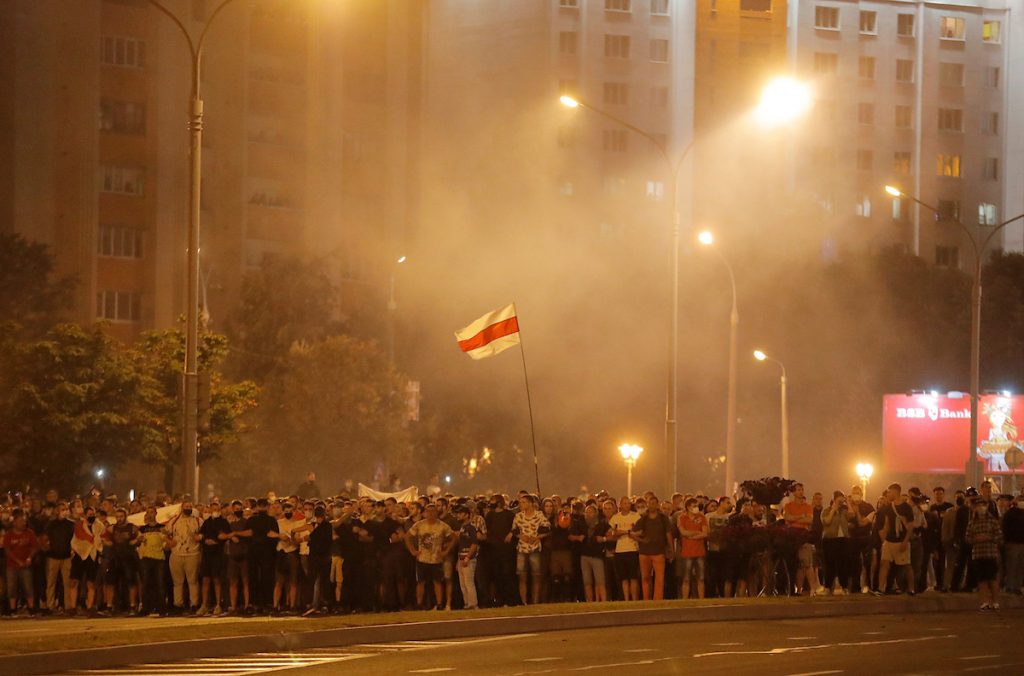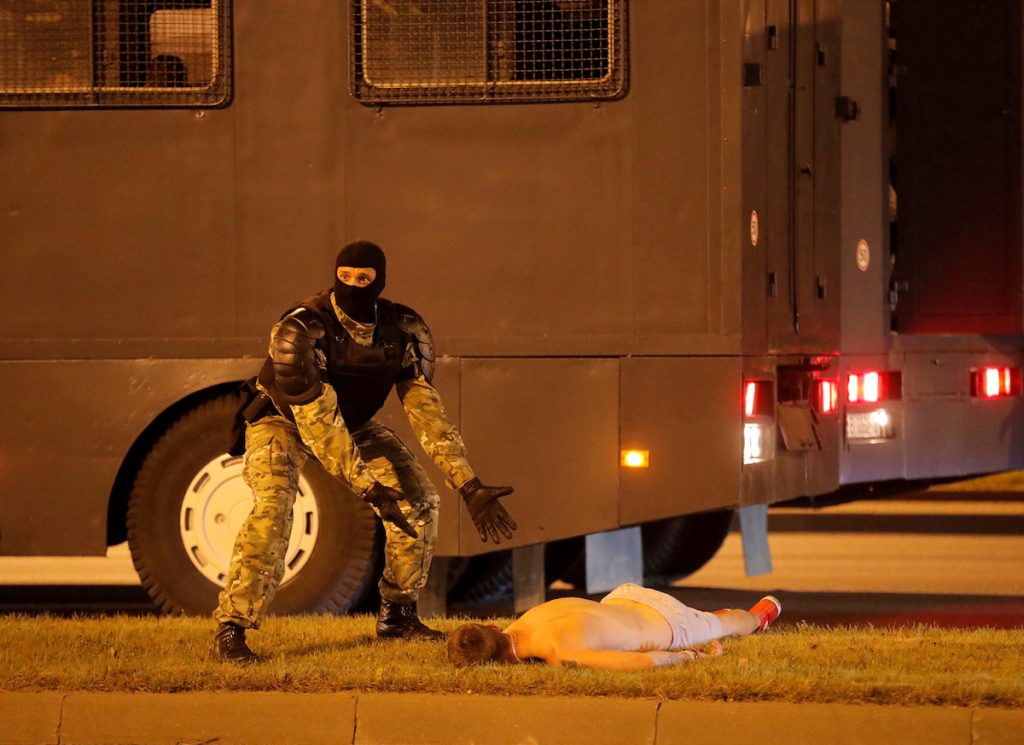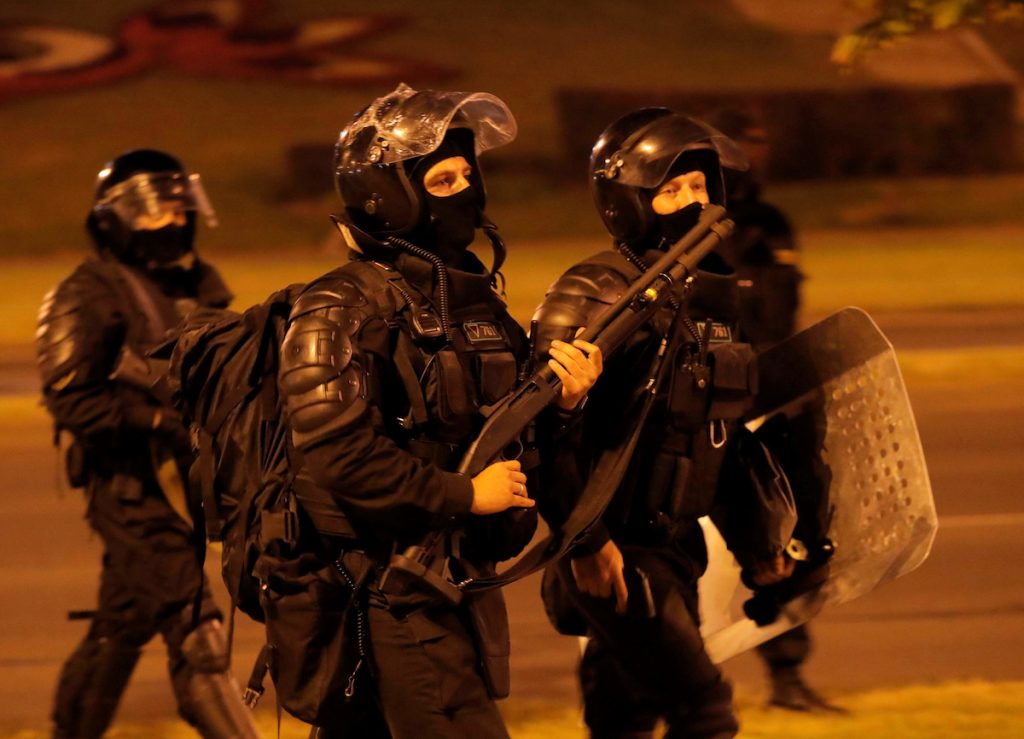Rubber bullets, tear gas in Belarus after Lukashenko re-elected president. Photos and video
Tens of thousands of people have taken to the streets in Minsk and other Belarusian cities after incumbent President Alexander Lukashenko announced his victory in the August 9 elections with 80.23% of the vote.
Dozens of people were injured in the demonstrations. The opposition intends to continue the protest.
Experts and many members of the public believe that the election results were falsified significantly. Lukashenko’s main rival, the single opposition candidate Sviatlana Tsikhanouskaya, won only 9.9%.
Tsikhanouskaya attracted tens of thousands of supporters to her campaign rallies, and experts today are confident that the real results of the elections are probably exactly the opposite of those presented, with Tsikhanouskaya winning by a huge margin.
More than 20 polling stations announced exactly the same results: around 14% for Lukashenko, and more than 70% for Tsikhanouskaya.
The same results were reported at polling stations abroad.
Lukashenko’s other main rivals were not allowed to run, and two were arrested.

What happened on August 9
Protesters in Minsk and other cities around the country only dispersed at around 3 am on the morning of August 10th. As they left, they chanted: “[We’ll be back] tomorrow!”
In addition to the capital, the massive protest extended to almost all cities in the country.
The most fierce confrontation took place in Minsk. Stun grenades and tear gas were used extensively, and a police van drove into the crowd of protesters.

The ministry of internal affairs reports that about a thousand people were detained in Minsk and spent the night in prison. Police say 50 protesters have been injured, but there have been no deaths. However, human rights activists report the death of a young man hit by the police van.
Official information from the ministry of internal affairs states that protests took place in 33 cities, and more than 3,000 people were detained.
The Belarusian authorities report that the most violent clashes in the regions took place in the city of Pinsk. The ministry of internal affairs reports that “a group of citizens tried to organize an attack on police officers using of pointed sticks, rods, stones and makeshift armor.”
The Internet has been disconnected in the country since August 9, and mobile communications are intermittent.
Lukashenko’s reaction
Alexander Lukashenko himself called the last elections a “day of celebration”, which some forces tried to “spoil”.
He says the protesters were controlled from abroad.
“We have recorded calls from abroad. There were calls from Poland, Great Britain and the Czech Republic, they controlled our people, who, excuse me for saying, acted like sheep: they do not understand what they are doing, and they are already starting to be controlled,” said Lukashenko.
He also noted that “there will be no Maidan” and the authorities “will not be allowed to tear the country apart”. He says those who became victims during the clashes with the riot police provoked the security forces themselves.
“About 25 guys from OMON (special forces) were wounded. They have broken arms and legs. They deliberately hit these guys. The security forces responded. Why moan and cry about it now?” said Lukashenko.

What will happen after August 9
Presidential candidate Sviatlana Tsikhanouskaya and the joint opposition headquarters do not recognize the preliminary election results announced by the Central Election Commission.
As Euroradio reports, the presidential candidate spoke about the harsh suppression of protests in Minsk on the night of August 10.
“I was certain that the authorities would not take such measures,” Tsikhanouskaya said at a press conference. “What happened yesterday is unacceptable.”
“We are ready for long-term protests,” added headquarters spokeswoman Maria Kolesnikova.
She says the campaign headquarters is waiting for the final results of the vote, which will be announced on August 14, after which they will decide what to do next.
Earlier, Tsikhanouskaya called on her supporters and the police to prevent violence on the streets of the country’s cities. Tsikhanouskaya herself did not go out with the protesters, fearing that this would become a pretext for persecution by the authorities.
However, after the clashes on the night of August 10, eyewitnesses report that the mutual animosity between police and protesters has grown significantly.

International response
The first to congratulate Alexander Lukashenko on his next presidential election was his Russian counterpart Vladimir Putin.
President of Kazakhstan Kassym-Zhomart Tokayev also sent a congratulatory telegram to Lukashenko.
Polish Prime Minister Mateusz Morawiecki called on the European Union to hold an emergency summit on the situation in Belarus. “We must be in solidarity with the Belarusians and support them as they strive for freedom,” said Moravetsky.
President of Ukraine Volodymyr Zelensky called on Belarusians to “begin a dialogue that is as open as possible, albeit difficult” and to renounce street violence.
Does Belarus also decide the future of Russia?
Independent Russian political analyst Leonid Gozman draws attention to the fact that “Lukashenko’s vertical structure is shaking,” as in a number of cities, the police were demonstratively loyal to the protesters, and some commissions refuse to falsify the results.
“If, in the next few days, the scale and intensity of the protests do not decline, everything will depend on whether Lukashenko has the punitive capability to stop the protest throughout Belarus. Are the officers and soldiers in these units ready to deliberately kill fellow citizens? And how will the Belarusian society react to the victims? Will it submit for the time being or, on the contrary, will it become radicalized?
In any case, we are witnessing an event of such a scale that will affect the future not only of Belarus, but also of Russia.”


















